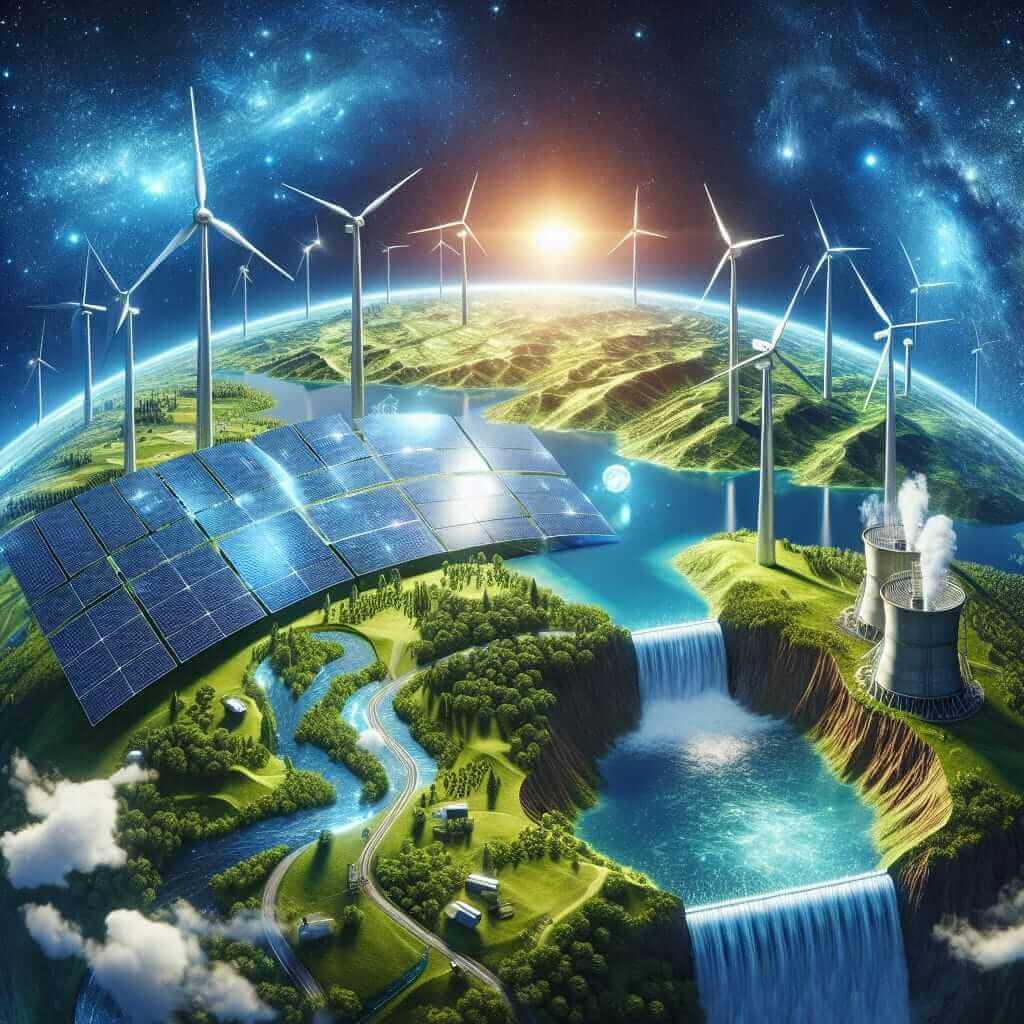The urgency of climate change has brought the topic of clean energy to the forefront of global discussions. Consequently, it’s not surprising that “The importance of clean energy in combating climate change” has become a recurring theme in IELTS Writing Task 2. This prevalence is due to the profound implications of this issue on our present and future.
Table Of Contents
This article will delve into this crucial topic, providing potential IELTS essay questions, a band-8 sample essay, and essential vocabulary to help you excel in your writing exam.
Potential IELTS Essay Questions
Here are some potential essay questions related to clean energy and climate change:
- To what extent do you agree or disagree that transitioning to clean energy sources is the most effective solution to combat climate change?
- Discuss the advantages and disadvantages of investing in renewable energy sources to mitigate the effects of climate change.
- Governments and individuals must work together to promote clean energy. What are the most effective ways to achieve this?
Sample Essay: Transitioning to Clean Energy
Question:
To what extent do you agree or disagree that transitioning to clean energy sources is the most effective solution to combat climate change?
Essay:
Climate change, largely driven by the burning of fossil fuels, presents a formidable challenge to our planet. While some argue for a multifaceted approach, I firmly believe that transitioning to clean energy sources is the most effective solution to combat this global crisis.
The detrimental effects of fossil fuels are undeniable. Their combustion releases massive amounts of greenhouse gases, trapping heat in the atmosphere and causing global warming. This warming effect disrupts weather patterns, leads to more frequent and severe natural disasters, and threatens ecosystems worldwide. Conversely, clean energy sources, such as solar, wind, and hydro power, produce little to no greenhouse gas emissions. Their adoption can drastically reduce our carbon footprint and mitigate the severity of climate change.
Furthermore, transitioning to clean energy fosters energy independence and security. Many countries rely heavily on importing fossil fuels, making them vulnerable to price fluctuations and geopolitical instability. By investing in domestically sourced renewable energy, nations can reduce this dependence and create more resilient energy systems.
Opponents argue that renewable energy is intermittent and reliant on weather conditions. However, technological advancements in energy storage and grid management are rapidly addressing these concerns. Moreover, the long-term economic benefits of clean energy, including job creation and reduced healthcare costs associated with pollution, far outweigh the initial investment.
In conclusion, while addressing climate change demands a multi-pronged strategy, shifting to clean energy stands out as the most impactful solution. It directly tackles the root cause of the problem—greenhouse gas emissions—while fostering energy security and economic growth. Therefore, I strongly agree that embracing clean energy is paramount to safeguarding our planet’s future. (Word Count: 285)

Writing Tips
- Clear Position: State your position clearly in the introduction and maintain it throughout the essay.
- Strong Arguments: Support your stance with well-developed arguments and relevant examples.
- Topic Vocabulary: Utilize specific vocabulary related to climate change and clean energy.
- Cohesive Devices: Use a range of cohesive devices to link your ideas logically.
- Grammar and Accuracy: Pay close attention to grammar, spelling, and punctuation.
Key Vocabulary
- Clean Energy (n.) /kliːn ˈɛnədʒi/: Energy derived from renewable, non-polluting sources.
- Climate Change (n.) /ˈklaɪmət ˌtʃeɪndʒ/: Long-term shifts in temperatures and weather patterns.
- Fossil Fuels (n.) /ˈfɒsɪl ˌfjuːəlz/: Carbon-based fuels formed from the remains of ancient organisms.
- Greenhouse Gases (n.) /ˈɡriːnhaʊs ˌɡæsɪz/: Gases that trap heat in the Earth’s atmosphere.
- Renewable Energy (n.) /rɪˈnjuːəbl ˈɛnədʒi/: Energy from sources that naturally replenish.
- Carbon Footprint (n.) /ˈkɑːrbən ˈfʊtprɪnt/: The amount of carbon dioxide released due to human activities.
- Energy Security (n.) /ˈɛnədʒi sɪˈkjʊərəti/: Having access to reliable and affordable energy sources.
- Intermittent (adj.) /ˌɪntəˈmɪtənt/: Occurring at irregular intervals; not continuous or steady.
- Mitigate (v.) /ˈmɪtɪɡeɪt/: To make something less severe or serious.
- Paramount (adj.) /ˈpærəmaʊnt/: Of the greatest importance; supreme.
Conclusion
Writing about clean energy and climate change in IELTS requires a blend of factual knowledge, strong vocabulary, and effective argumentation. By studying this guide and practicing regularly, you’ll be well-equipped to tackle these important topics with confidence in your exam. Remember to explore other related themes like sustainable development, environmental conservation, and the role of technology in combating climate change.